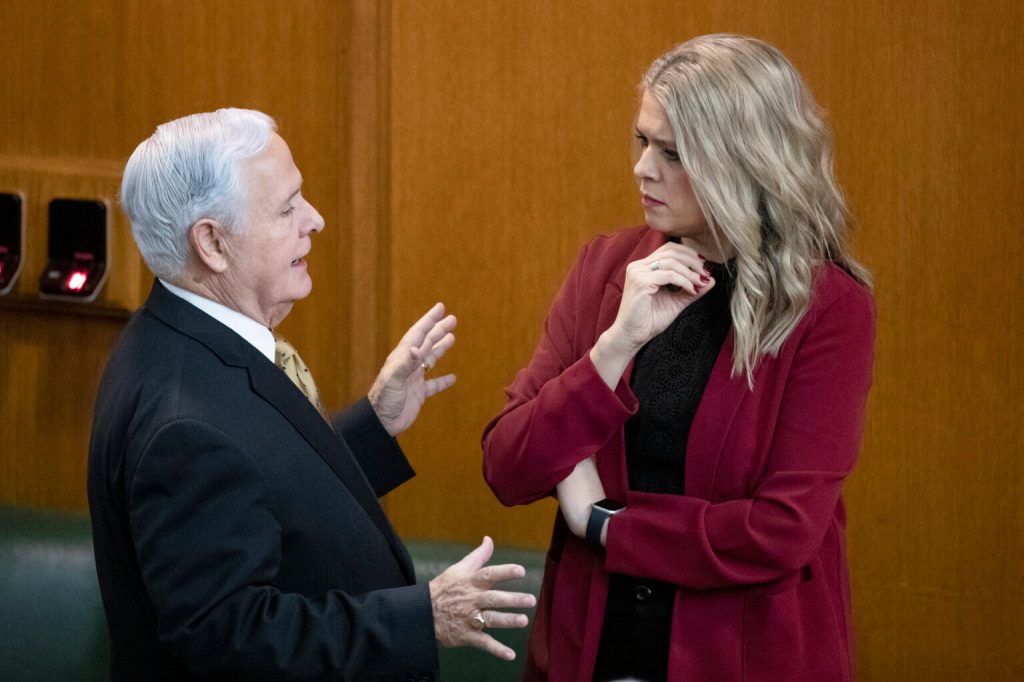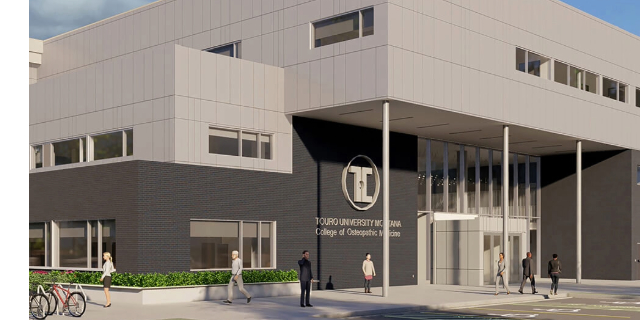Oregon House introduces scaled-down transportation bill with days left in session
Published 8:42 am Thursday, June 26, 2025

- Rep. Shelly Boshart Davis, R-Albany, speaks with Rep. Kevin Mannix, R-Keizer, on the House floor at the Oregon State Capitol in Salem on Tuesday, Feb. 28, 2023. Boshart Davis, vice chair of the Joint Committee on Transportation Investment said she would not be voting to pass a transportation package during the 2025 Legislative Session. (Amanda Loman/Oregon Capital Chronicle)
The latest proposal is unpopular with Republicans and some rank-and-file Democrats who said they’ve not had enough time to process it
With days left in the legislative session, Oregon lawmakers will consider scaling back tax increases proposed in a transportation funding bill that lacked the support to pass the House.
A 155-page amendment in House Speaker Julie Fahey’s name, posted Wednesday afternoon with a hearing scheduled for Thursday afternoon, is a slimmed-down version of House Bill 2025, which advanced to the House floor on a party-line vote last Friday.
The new version is estimated to raise about $11.7 billion over the next 10 years, down from the $14.6 billion of the earlier version. The new version cuts many of the tax increases that one swing-district Democrat called “insane.”
Still, it remains unpopular among Republicans and some rank-and-file Democrats, many of whom have barely had time to examine it. Rep. Shelly Boshart Davis, R-Albany and vice chair of the Joint Committee on Transportation Investment, said the process itself has soured her on voting for a transportation package and nothing could be done to make it palatable at this point.
Negotiating the bill and posting amendments within just a few days of the session’s end is “abhorrent,” Boshart Davis said.
“We do not have to pass this tax,” she said. “There is nothing that says we have to pass a tax on Oregonians today. We can do a continuing resolution,” to keep transportation money flowing temporarily. “We can do a Band-Aid so that we can get a better process that actually holds ODOT accountable.”
Given united opposition from legislative Republicans and skepticism from some Democrats, the House opted to send the bill back to its committee for revisions on Monday. If it advances in its current form, it could pass the House as early as Thursday evening.
From there, it would move to the Senate. It takes a minimum of three days between a bill’s first appearance in a chamber and its final vote unless lawmakers vote to waive their rules. That means senators would face the choice to waive their rules to pass the measure Friday or Saturday, wait until Sunday, the last possible day of the legislative session, or go home without passing a transportation tax and spending bill.
Rep. Susan McLain, D-Forest Grove and the House co-chair of the committee, told the Capital Chronicle she had “no thoughts” on the amendment and would save her comments for Thursday’s meeting. Lawmakers and the public will see a detailed funding breakdown at that meeting.
Fahey’s amendment would get rid of a proposed transfer tax of 1% for used cars and 2% for new cars, which critics have compared to a sales tax. It also would change the gas tax, which was scheduled to increase from 40 cents to 55 cents by 2028 in the original bill, instead raising it to 52 cents.
It maintains the proposed tripling of the payroll tax to fund public transit, going from 0.1% today to 0.18% starting in 2026, and 0.3% in 2030.
Any bills that increase taxes need support from at least 36 representatives and 18 senators — the exact number of Democrats in the Legislature. But Democrats aren’t assured of support from their own caucus: Last Friday, Senate President Rob Wagner, D-Lake Oswego, yanked Sen. Mark Meek, D-Gladstone, from the Joint Transportation Reinvestment Committee because of Meek’s opposition to the earlier version of the bill.
Meek told the Capital Chronicle via text Wednesday afternoon that he had just been informed of the amendment’s posting and planned to read up on it after the Senate’s floor session ended.
Another skeptic, Rep. Paul Evans, D-Monmouth, said in a text that he was still reviewing the amendment. Evans, a member of the Joint Committee on Transportation Investment, asked earlier this week to be removed from the committee over his frustration that he wasn’t included in weekend negotiations and his belief that there was “no use” in continuing to serve on the committee.
He remained frustrated Wednesday and said he wasn’t brought in on the new version.
“Not thrilled,” Evans texted. “Very, very frustrated with our current leadership.”
Capital Chronicle reporters Mia Maldonado and Alex Baumhardt contributed to this story.







